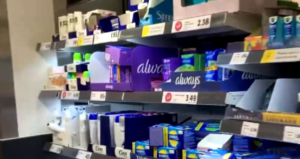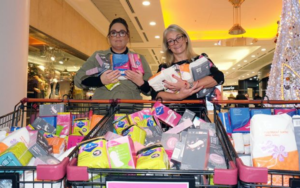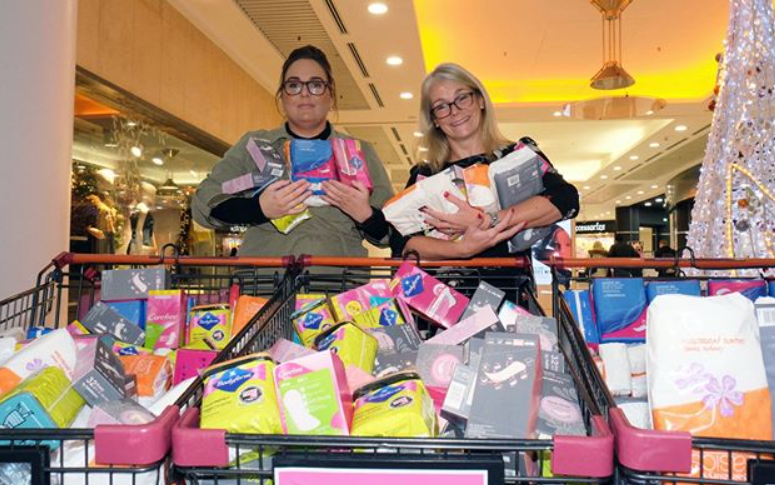Combatting Period Poverty

Nora Amini
Many businesses have made attempts to tackle period poverty in several ways.
One of them is Lidl Ireland, the first major retailer globally to provide free sanitary products to women who menstruate.
“Lidl is thrilled to verify that over 20,000 registered Lidl Plus customers have signed up to collect their first-period poverty coupon,” the business said.
According to a report released in February by Ireland’s Department of Health and the Department of Children, Equality, Disability, Integration, and Youth, as many as 85,000 women and girls in Ireland could be at risk of period poverty, with those experiencing homelessness or addiction being especially vulnerable.

Paisley Scotland, CC, Flickr https://www.flickr.com/photos/paisleyorguk/46093978681
The supermarket chain has announced that it would donate menstrual items to The Simon Communities, a homelessness charity, every quarter to ensure that people experiencing homelessness, who may not have access to a smartphone, have access to them.
Aoife Clarke, head of communications for Lidl Ireland, said in a statement,
“Since learning more about the growing issue of period poverty in Ireland, we’ve passionately felt that as a family retailer it’s in our communities best interest to support young girls and women who are affected by this issue.”
Starting May 3, eligible customers in the Republic of Ireland will receive a coupon for a free box of pads or tampons via the Lidl Plus app.
According to a Plan International survey, nearly half of girls aged 12 to 19 in Ireland have found it difficult to pay for sanitary items.
Young Scot conducted a poll of over 2,000 people and discovered that one in every four students, college students, and university students in Scotland had difficulty accessing period products.
Women and girls all over the world are affected by period poverty. Anyone who menstruates needs access to sanitary items, clean, sanitary spaces in which to use them, and the freedom to treat menstruation without embarrassment or stigma.

Greg Peterson, CC, Flickr https://www.flickr.com/photos/glpjp/28760828253
Menstruation frowns upon throughout the world. Menstruating women in Nepal, for example, are considered impure by their culture and are confined to shelters during their periods.
Although menstruation huts are technically prohibited, families continue to risk their lives because myths and misconceptions are strongly embedded in Nepalese culture.
In a survey done in Uganda by the non-governmental organization WoMena, many girls missed school while on their period to avoid ridicule by peers.
Dr. Varina Tjon A Ten, a former Dutch politician and professor at The Hague University, remarked, “Politicians don’t like this topic because it’s not sexy.”
Period poverty has consequences for both individuals and culture as a whole, and it must be addressed. Related to poverty, you may not have access to healthy and hygienic menstrual items, or you may be unable to treat your period hygienically.
Hannah Neumeyer, WASH United‘s head of human rights, noted, “Women and girls have human rights, and they have periods.” One should not triumph over the other.”
By Isabella Linder










